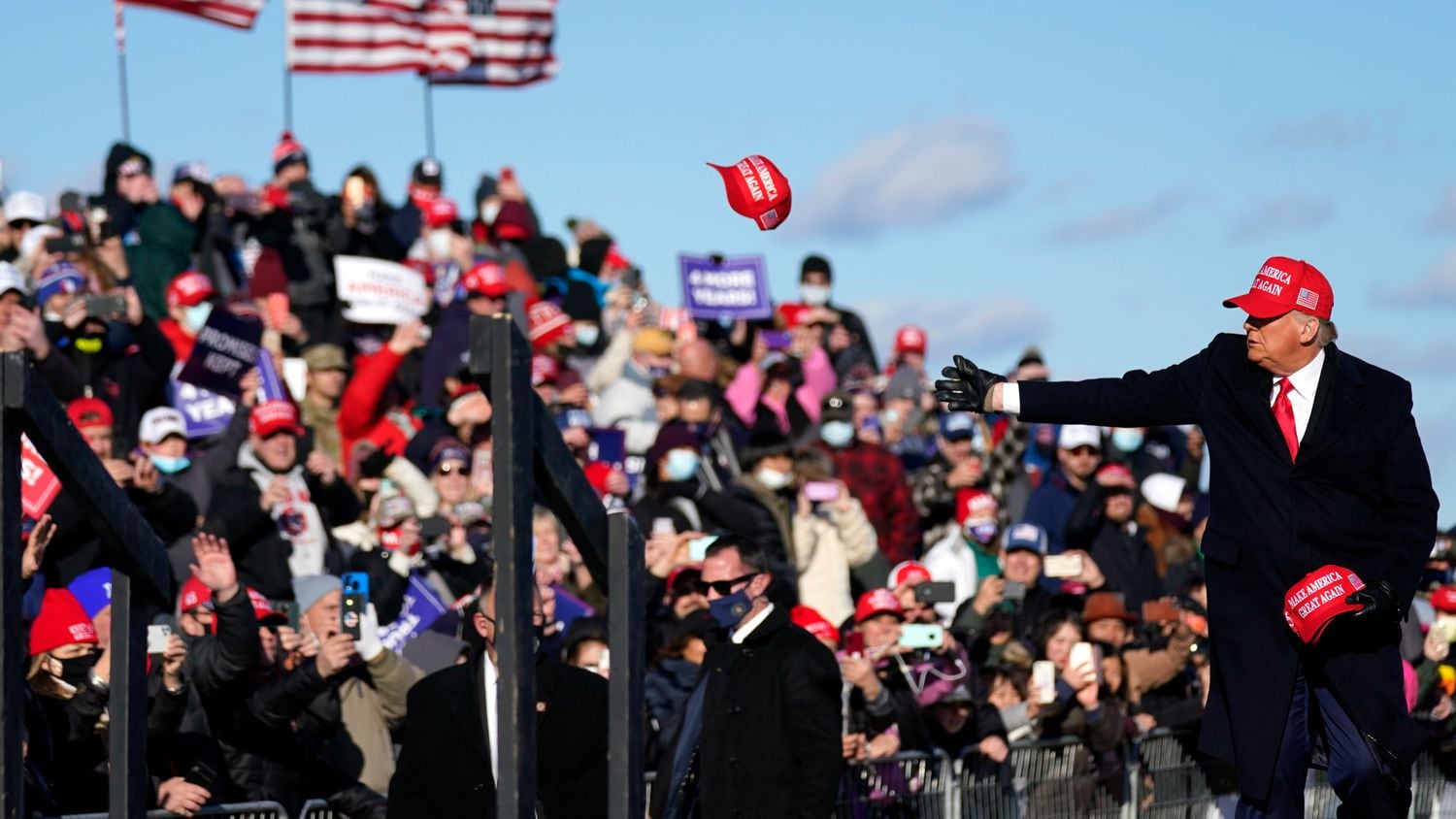
Voters will choose between Donald Trump`s nationalist brand and Joe Biden`s moderation.*
With the presidential election on Tuesday, the United States is submitting the populist wave that has shaken politics on both sides of the Atlantic over the past few years to a plebiscite. A decisive Donald Trump defeat would represent a repudiation of the nationalist turn and division experienced by the country. Similarly, there would be commotion in half the world if he were to be reelected. His rival, Democratic candidate Joe Biden, who is leading in the polls, embodies traditional and moderate politics. He is also an exemplary veteran of the Washington establishment that many people long for with all its glory and misery.
Americans are choosing more than just a leader for the next four years; they are choosing the person who will lead them out of the worst economic crisis since the 1929 Great Depression, the worst pandemic in a century, and someone who will overcome the wave of racial tension that has not been experienced since the death of Martin Luther King Jr. When the polls open on Tuesday, nearly 100 million people will have already cast an early vote, a record that demonstrates great participation and a general conviction that in fact, in this country of 330 million inhabitants, the size of a continent with a massive economy, the future of many generations is on the line.
Biden, 77, and Trump, 74, both elderly white men, have opposite positions on everything else. The incumbent president recognized the exasperation of a poor white working class that feared immigration, and won the 2016 election with the promise of an industrial rebirth, doing so with the premise that he was a businessman who knew how to govern the country better than the political class. The rise of populism did not start on Nov. 8, 2016. By then, France had already seen the emergence of a new movement featuring the ideology of the LePens and the United Kingdom had already voted in favor of Brexit.
However, Trump`s victory served to amplify a band of copycats and transformed peripheral figures, such as Steve Bannon, into ultraconservative rock stars in Europe. Now, populism is suffering a setback in countries like the United Kingdom, where support for Brexit is decreasing, and in Germany, where the far right movement is coming to a halt. If they thrive when power is eroding, how will they navigate when their own decline is part of the government?
Trump himself sees the election as a plebiscite on himself and his leadership. The Republican Party did not even bother to create a new platform, which is a sort of statement of principles and promises equivalent to European electoral platforms that parties discuss in their midyear conventions when they vote for their presidential and other government candidates. For the first time, Abraham Lincoln’s Republican Party announced that it would limit itself to “enthusiastically support[ing] the president’s America-first agenda.”
The pandemic erased one of the real estate magnate’s great electoral triumphs, the economy, which was flying high, featuring the lowest unemployment rate in half a century and the longest period of expansion in history. But the health crisis also showed Trump’s more erratic side, as he was determined to play the anti-government card while he sat at the heart of government, and as he declared war on virus prevention directives from his own administration. According to Real Clear Politics, the national polls point to Biden leading by 6.5 points on average, a big lead, but one which has diminished in the last few days.
Fear of Unrest
The president continues to endorse the antiestablishment message — “we will DETHRONE the failed political class, we will drain the Washington Swamp & we will SAVE THE AMERICAN DREAM!” he tweeted this Monday, and he continues to use primal fears to mobilize his base. He promises law and order in the face of protest against racism and as a shield against communism. Furthermore, he states that with Biden, the economy will take longer to reopen and will fall into the hands of authoritarianist socialism.
It is unclear what the affect this language will have on all but his most loyal supporters. Barack Obama’s vice president has had a well known moderate trajectory since being elected to the Senate for the first time in 1972, even though over time it has strayed more to the left, as did the Democratic Party as a whole. Nevertheless, he is in the centrist group. The more progressive sector of the party assumed that the Democratic veteran could consolidate the largest amount of support and decided to close ranks in supporting him. Biden has warned of tax increases for “the wealthiest Americans,” as he simultaneously tries to reach Republican voters.
The Democrats are seeking to overcome the trauma of 2016, when by-the-book candidate Hillary Clinton was defeated, against all odds, by a millionaire with no political experience, someone who was famous as a brutish host of the reality show “The Apprentice.”
As he did in 2016, Trump is once more sowing the seeds of doubt about the rigor of the election, prompting baseless suspicion of fraud. Political polarization has worsened, and the country, which has always been proud of its peaceful transfers of power, began the day yesterday with boarded up businesses and full of new security measures, for fear of unrest. The man who wins the election will take the reins of a broken country.*
*Editor’s note: Democratic candidate Joe Biden was declared the winner of the presidential election on Nov. 7.

Leave a Reply
You must be logged in to post a comment.